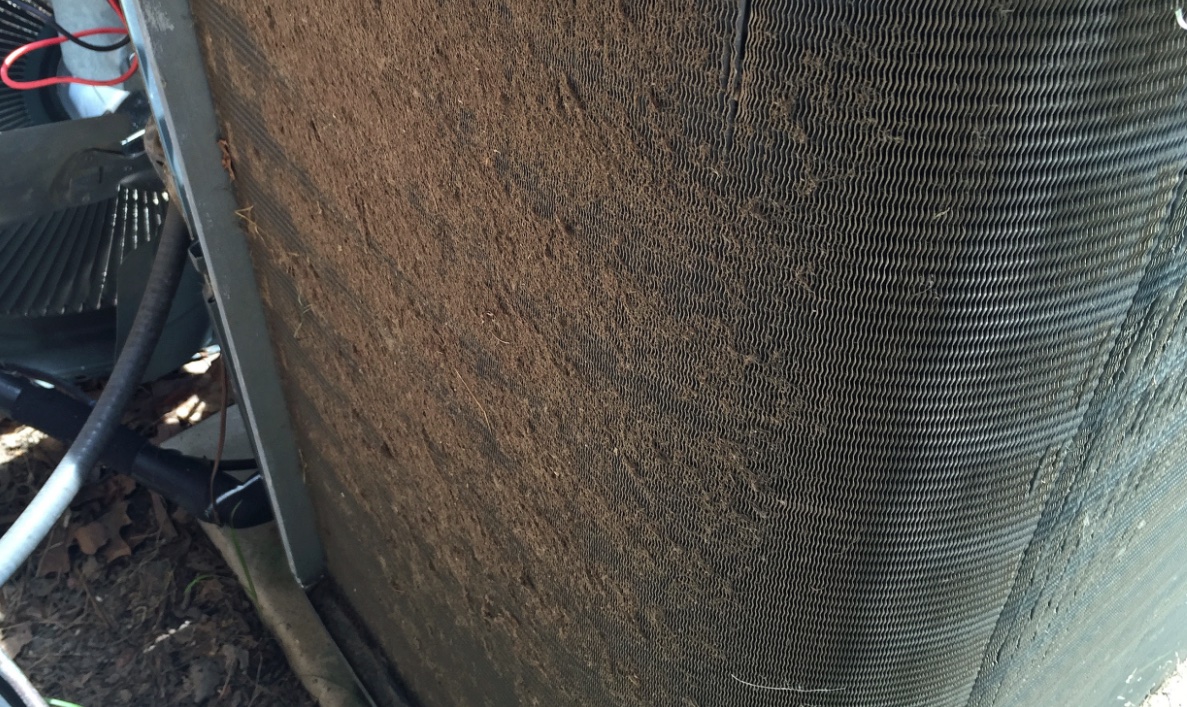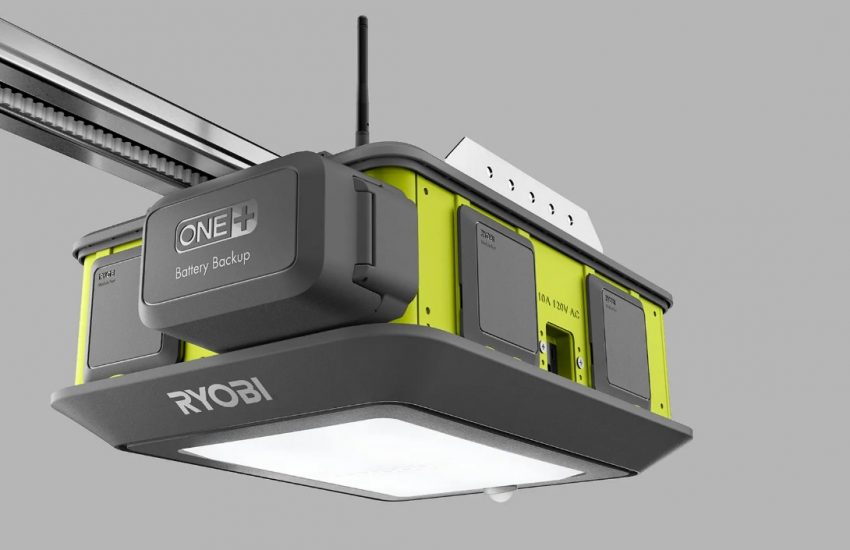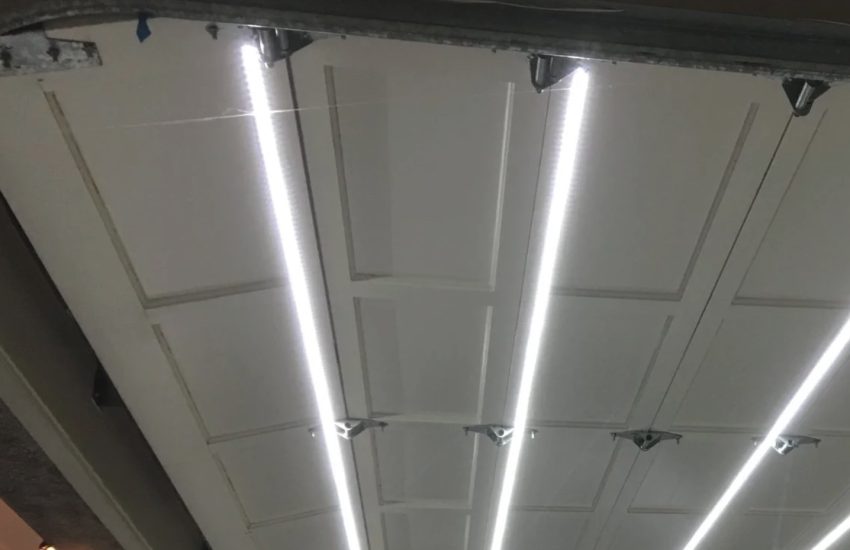Why Does My Air Conditioner Smell so Bad?
After a hard day’s work during summer, all you want to do is probably enjoy the cool relief of your air-conditioned home. However, when you turn your AC on, a bad stench fills the room and forces you to turn it off.
If your AC has a bad smell, it could indicate a few issues, depending on its type of odor.
Here are some possible AC smells you will likely experience, the reasons for their occurrence, and their solutions.
Why Is There a Bad Smell Coming From My Air Conditioner?
When you notice a bad smell coming from your AC, you want to get the source and eliminate it. However, it’s best to understand that the stench from your AC could also indicate serious health hazards.
Here’s a detailed explanation of the kinds of smells that you can experience if you own an air conditioner and how to get rid of them:
Air Conditioner Smells Musty or Moldy
A dingy or stale smell is one of the most common foul smells from ACs. If your air conditioner smells musty, it could be due to water accumulation in the drip lines or drain pan. In the case of ducted systems, it can also be due to the accumulation of water in the ducts, which might lead to mildew or fungus growth.
If there’s a leakage, you might even get visible signs in your ductless unit, including water dripping down your wall.
Dirty filters can also result in a moldy or musty smell. If you live in a hot and humid climate and turn your AC on after a long time, moisture can accumulate in your filters.
In such a case, you will need to contact a professional and get your AC lines and ducts thoroughly cleaned. However, cleaning will only remove the unpleasant smell. If there’s a leakage, the professionals will also need to fix it to prevent further problems.
AC Smells Like Rotten Eggs
The rotten air conditioner smell from your AC is usually the result of dead critters or rodents stuck in the AC. This smell is distinctive; you can’t mistake it for anything else.
Insects and birds can take refuge or nest in your ductwork and, unfortunately, get trapped in the equipment. Over time, the dying animals emit unpleasant smells, and as soon as you turn your air conditioner on, it can discharge a foul smell into your home.
The best way of dealing with such a scenario is to pest-proof your AC unit to prevent it from smelling like a carcass. Then, you can fix the issue or call a technician to assist if it happens.
If you fix the issue yourself, you’ll need to locate the exact duct where the stench is coming from, use a screwdriver to remove the cover, and then carefully remove the carcass. This process can be tricky if the dead animal is not in sight; therefore, keeping a torch in quick reach is best.
Once you remove the carcass, gently wipe the area clean to ensure it’s dry. It’s also best to have a professional check your ductwork to ensure nothing is damaged and seal any entry points.
Air Conditioner Smells Like Pee
A pee-like smell from your air conditioner is very unpleasant. It is often the result of ammonium in the mycotoxins released by mold spores inside the unit. The mold growths are often discovered on the metal evaporator coils and are commonly worsened by:
- An unclean, poorly-maintained unit
- An accumulation of human skin cells.
In rare cases, a dead rodent might cause a urine-like odor, as their bodies release ammonia during decomposition. It’s best to minimize the source of indoor air pollutants in your home and carry out regular maintenance to contribute to a more efficient and less smelly air conditioner unit.
Air Conditioner Smells Like Feet
If the smell coming from your AC smells like stinky feet or dirty socks, it might indicate a moisture issue. For example, your drainage system might be clogged, or your filter might be dirty, causing too much moisture or standing water in your AC unit that eventually starts to smell like sweaty feet.
In such a scenario, it’s best to call your HVAC technician to diagnose and repair the problem.
Burning Smell From the AC
Your Air Conditioning unit has many electrical components, including power wires, circuit boards, compressors, fans, etc.
If your AC smells like burning plastic or gunpowder, it probably indicates that one or several of the components are burning. In such a scenario, it’s best to immediately turn your AC off and consult a professional for a solution. Attempting to do a DIY can be dangerous.
A burning smell from the AC can also be due to dust settling within your unit after a long period of inactivity. When turned on after a long time, the dust can burn off and emanate a bad smell. This situation is temporary, and you shouldn’t be too concerned about it. However, it’s best to turn off your unit and call an HVAC expert if it starts to malfunction or the smell is highly pungent.
AC Smells Like a Skunk or Gas
When your AC smells like a skunk in the house or gas, it often indicates gas leakage within the system, specifically, Methyl Mercaptan.
Natural gas on its own has no smell; however, utilities and gas distributors often put in Methyl Mercaptan to offer a distinctive odor to the gas. This measure is to help ensure immediate detection to prevent any serious harm that can occur from gas leakage.
If your AC has this type of smell, gas is leaking and getting into your ductwork. Turn off your gas supply when you note such a smell, and contact your utility to detect the source and repair the problem.
AC Smells Like Cigarette Smoke
The bad smell from your air conditioner that smells like stale cigarette smoke could be present if you smoke at home. The unpleasant smell can cause headaches and allergic reactions.
If you’re a frequent smoker, the evaporator coil and filter will absorb the odor from the cigarette smoke. Consequently, when you turn on the air conditioner, the embedded tobacco particles are knocked loose and sent back into your home through the AC’s vents, creating an unpleasant atmosphere.
If you want to eliminate this smell from your AC vents, consider changing your air filter once every 30 to 60 days and clean your AC regularly. It would help if you also considered smoking outside to avoid such scenarios.
How Do I Get Rid of the Bad Smell in My Air Conditioner?
The solution you choose to eliminate the bad smell in your air conditioner will depend on the type of odor. If you’re not a DIY enthusiast or your AC smells like gas, feet, or has a burning smell, you should consider contacting an HVAC technician.
You can also try the following to remove the bad smell from your air conditioner:
Replace the Air Filter
It’s best to find your air conditioner’s filter and replace it. Some units use reusable filters, while others use disposable filters. If your AC has a reusable air filter, remove it and clean it with warm, soapy water.
Rinse the filter in diluted bleach to ensure that you killed all the mold and debris from the filter that could continue to cause odors.
Use Air Purifiers to Help With Air Conditioner Smells
Adding an air purifier to your home can help with AC smells. Air purifiers are a safe and effective way to remove odors from the air. A purifier removes the smell by cycling the air in the room through a fan.
The air is then filtered through an activated charcoal filter, which absorbs and removes the odors. Some air purifiers use a High-Efficiency Particulate Air (HEPA) filter to remove contaminants from a room. These filters remove small particles from the air that can create odors in a room, but they don’t absorb the smells like activated charcoal.
While an air purifier can help remove odors from your AC, you can prevent the smells from coming from your unit by finding the source of the smell and dealing with it.
Flush the AC’s Drain Line
The drain line is a small line that drips water, also known as a condensation line. The line plays a big part in how effectively your unit runs and smells.
A clogged drain often encourages mildew growth around the coils, creating a musty smell from your air conditioner. If there’s a clogged drain, you’ll have to clean it to remove the smell from your AC unit.
You can use distilled vinegar, a wet/dry vacuum, and a rag to clean a clogged drain. Use this procedure to clean the drain line:
- Turn off the power to your AC unit
- Go outdoors, locate the T-shaped cap on the drain line and remove it to look for blockage. If you can see it, then remove the blockage.
- Pour distilled vinegar inside the drain line, and continue the process for about 30 minutes.
- You can also use a dry/wet vacuum to clear the drain by placing the hose over the line and using a rag to fill the gap between the hose and the line.
- Turn on the vacuum and leave it running for a few minutes to suck out any blockage causing the odor.
Clean the Drain Pan
If there’s a bad smell from your AC, you will need to clean the drain pan as well. You can use vinegar or bleach to clean the pan by following these steps:
- First, take the drain pan and wash it with warm, soapy water.
- Ensure you eliminate any mold that could have grown and contributed to the musty smell.
- Next, rinse the pan with bleach or vinegar.
- Once the pan is completely dry, please put it back in its place.
How Do You Deep Clean an Air Conditioner?
Cleaning your air conditioner is a critical maintenance element because it will help keep your system healthier for longer. This also translates to fewer big-ticket repairs and a lower energy bill.
Before cleaning your AC, it’s best to understand that the process will take time; therefore, set aside about half a day to ensure that you do the job right. You might also need specialized cleaning to complete the cleaning.
While you can deep clean your air conditioner yourself, it’s best to seek the services of an expert if your unit shows significant wear and tear or is particularly dirty.
How to Deep Clean Your AC Unit Inside
Air conditioners have an outdoor and indoor component, and each contains a different type of coil you’ll need to clean.
It’s up to you to decide whether you’ll start with the indoor or outdoor portion. Here’s how to deep clean the inside portion of your AC:
Turn Off the AC’s Power
Before you start cleaning, it’s best to remember that your safety is paramount; therefore, you should turn off the power at your breaker box. Turning off the lights means you won’t have any lights; hence, you should undertake the project during the day.
If the AC is dark, you’ll want to set up adequate lighting for the project.
Open Up the AC Unit
Your blower unit will have a door to the evaporator coil. You might have to remove the foil duct tape depending on your AC unit. A few bolts and screws often hold the door in place.
Clean the Evaporator Coils
You can remove dirt from the coil using a soft brush. However, the dust might consist of pollen or skin cells; therefore, it might be a good idea to wear a mask if you’re prone to allergies.
Use a no-rinse coil cleaner as your cleaning solution because it foams up and drips into the unit’s drain pan, taking dust and dirt with it. Spray the foam on as evenly as you can, and get it in all the small areas you can’t reach by hand.
It’s best to clean your AC on a warm day to ensure that all condensation rinses off the coils when you turn the unit back on.
Clean the Drain Pan
Soap and hot water are great for cleaning the drain pan, and bleach will help with sanitization. Have a 50/50 mixture of bleach and water; pour the solution down the drain to ensure it’s clear. If you’re looking for a longer-term solution to keep your drain from growing algae, you can purchase AC drain pan tablets to help with this.
Clear the Air Conditioner Drain If It’s Plugged
You can eliminate this step if the bleach solution washes easily down the drain. However, if it’s sluggish, your drain might be plugged because mold and algae can build up the drain without regular cleaning and maintenance.
Follow the drain to where it ends and bring a wet or dry vacuum with you. Take the vacuum hose and hold it to the end of the drain tube, and you can prevent air leakage by holding a towel around the gap. If you want the tightest seal, duct tape the hose and drain together. Please turn on the vacuum and let it run for at least three minutes to clear any accumulated buildup.
Close the AC Access Panel
Reattach the access panels with the same screws you took out at the beginning of the procedure. You can also use HVAC metal foil tape to seal the top and bottom of the access panel. It’s best not to cover the manufacturer’s label because a technician may need it when making repairs or performing maintenance on the unit.
How to Deep Clean Your AC Unit Outside
The outer part of your AC unit gets dirty extremely fast. Here’s how to clean it to ensure that it’s functioning at its best:
Disconnect and Remove AC Grille
Ensure the power is off before starting the cleaning process. It’s best to shut off electricity at the outdoor disconnect box before starting the cleaning process.
Remove the sheet metal screws on top of the unit and lift the grille and the fan unit.
Remove Debris in the Air Conditioner
Depending on the type you’re using, there might be a varying amount of debris in the bottom of the AC. Entry-level models don’t have guards that stop the debris from coming through the top of the fan unit; therefore, you might end up with seeds, leaves, or even tiny twigs in the bottom pan.
You can scoop the debris out by hand or use your wet/dry vacuum to get it all out.
Clean the Fins and AC Coils
Cleaning AC condenser foils is not complicated. You will need a coil cleaning solution to get the job done; however, it’s best to understand that such cleaners are extremely acidic and can cause burns. The fumes are also very dangerous; therefore, you shouldn’t use this cleaner on your indoor coils.
Dilute your cleaning solution per the directions and add it to your pump sprayer. Then, spray the solution onto the coils; it will foam up in a few minutes, and you can wash it off with your hose.
It’s best not to use a pressure washer for this task because the fins are quite delicate, and the pressure can easily damage them.
Straighten the AC’s Fins
Straightening the AC’s fins is crucial in maintaining efficiency because bent fins often reduce airflow. You can purchase a fin tool to help with this process because it has teeth to allow you to comb a certain number of fins per inch.
Using the right number of fins per inch for your unit is best. All you have to do for this process is to comb the fins back into place carefully.
Clean Around the AC Unit
Replace the fan cage and affix it to the unit with the screws you took out when starting the cleaning process. Ensure the area around the unit is completely clear for at least two feet in every direction, ensuring optimal airflow.
Level the Air Conditioning Unit
Some dirt might settle underneath your unit and cause it to start tipping. If a condenser unit is out of level for too long, it might fail early, leading to costly repairs. If the condenser is not level, you can use shims to get it where it needs to be.
What to Do If Your Window AC Smells Bad
A smelly air conditioner is gross. If your window AC smells bad, the first thing to do is clean the filter. Some filters are meant to be replaced rather than cleaned; therefore, if you’re going to clean the filter on a large unit, it’s best to check the instruction manual to ascertain if cleaning is an option.
Check this too: How to Hide an Air Conditioner Unit Outside
If air from your AC smells bad, you should identify the type of smell and take the necessary steps to eliminate the odor. The tips above will help you know what you’re working with and fix your smelly AC.
Remember that you can always consult a professional if you’re not a DIY enthusiast or if you want your AC’s lines and ducts to be thoroughly cleaned.


